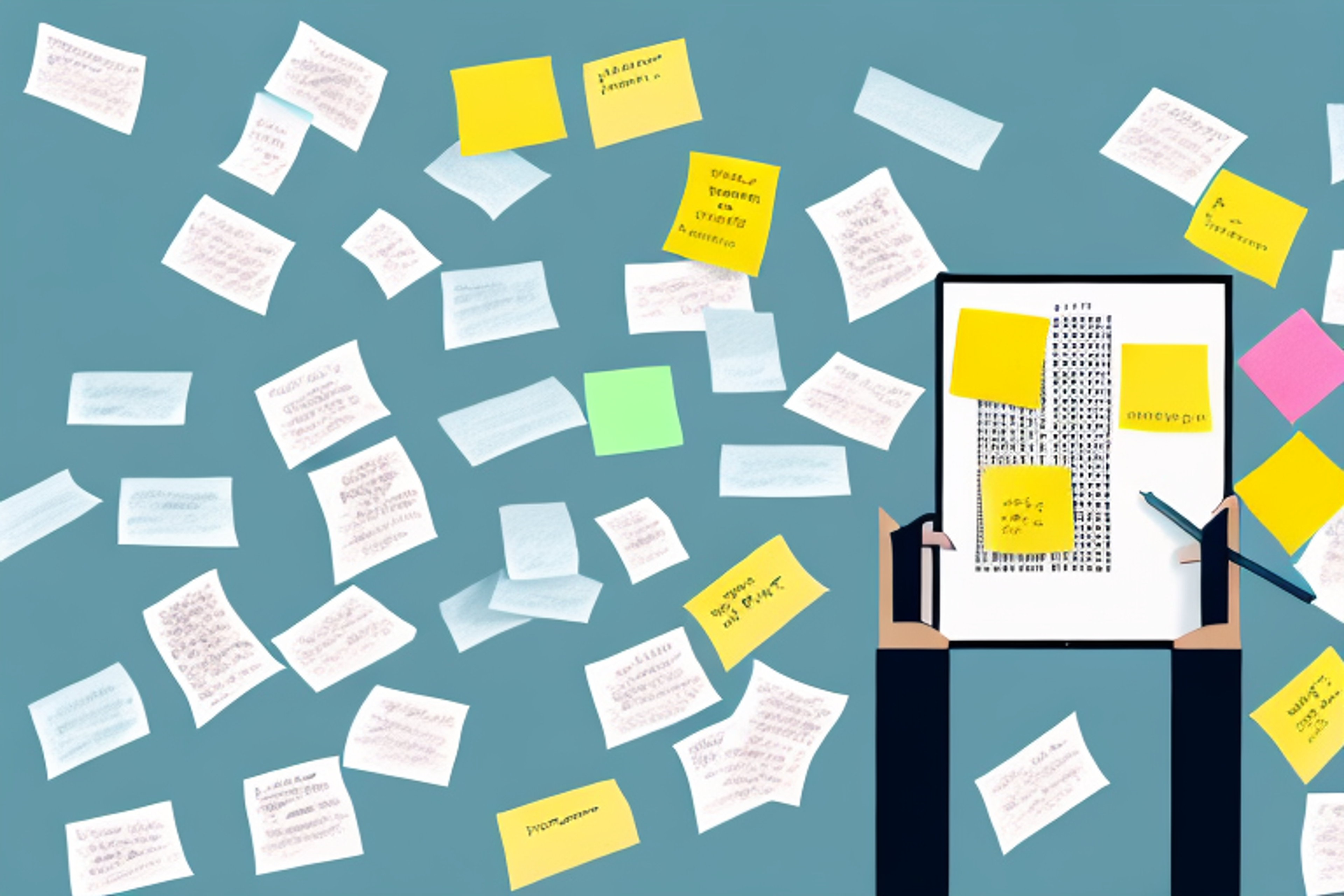McKinsey Case Interview & PEI - 6 Things You Need to Know
- Last Updated January, 2024

Rebecca Smith-Allen
Former McKinsey Engagement Manager
If you’re interested in a career in management consulting, McKinsey & Company is probably on your list of firms to apply to. It’s the oldest consulting firm, established in 1926 by James McKinsey, a University of Chicago professor and expert in management accounting.
Today, the firm employs 30 thousand professionals working in 130 cities around the world. McKinsey regularly ranks at the top of lists of strategy consulting firms and is hired by businesses, governments, and non-profit organizations to help solve their toughest problems.
It’s difficult to get a job offer from McKinsey.
Like its top management consulting competitors, Bain and BCG, McKinsey typically hires only 1% of candidates who apply. In particular, McKinsey case interviews are tough to crack…but not impossible.
If you’re interested in trying to beat the odds, this article will tell you what you need to know to succeed. We’ll tell you:
What’s different about McKinsey,
6 things candidates recruiting with McKinsey should know,
We’ll provide a mock McKinsey case interview video, and
Provide tips on acing your McKinsey interview.
Let’s get started!
What’s Different About McKinsey? 6 Things Candidates Should Know
1. consultants are hired for either the generalist track or a specialist track.
Generalists at McKinsey are consultants who could be staffed to help clients in any industry and dealing with any type of business problem. Specialists are consultants with a particular area of expertise.
Areas of specialization within McKinsey include digital and advanced analytics, marketing and sales, business turn around, operations, software development and design, and implementation.
2. Consultants Work On-Site At The Client 4 Days A Week.
Most consultants travel a lot and at McKinsey, this is definitely the case. Consider whether regular plane flights and hotel stays are right for you.
3. McKinsey Cases Are Interviewer-Led Rather Than Candidate-Led.
Candidates are still expected to identify key issues to be addressed to solve the business problem presented by their interviewer and outline a plan to explore these issues. After they do that, their McKinsey interviewer is likely to tell the candidate which issue they’d like to discuss first. Other management consulting firms, like Bain and BCG typically let candidates steer their case interview.
4. Interviewers Assess Fit As Part Of Every Interview With Personal Experience Interview (PEI) Questions.
While all strategy firms ask candidates Consulting Behavioral Interview Questions to assess their fit with their firm, many have one interviewer focus entirely on fit while others focus entirely on a case study question.
McKinsey interviewers split their interview time between the case and PEI in every interview.
5. McKinsey Looks For Personal Impact And Entrepreneurial Drive In Candidates.
This is in addition to the structured problem solving and leadership skills that McKinsey, as well as other top consulting firms, look for in candidates.
6. Mckinsey Recruiting Uses Solve - a Gamified Digital Assessment.
McKinsey’s Solve Game was launched to broaden the firm’s reach to find the best talent regardless of geography as well as provide deeper insight into candidates’ problem-solving skills.
Keep reading for a deeper dive into these topics.
Generalist versus Specialist Track Roles
When the management consulting industry was first founded, simply having an MBA and expertise in solving business problems was enough to set a consultant apart. Consultants hired by McKinsey could expect to be staffed on a case in any industry and solving any type of problem.
To help clients solve these types of business problems effectively, McKinsey hires people with years of experience in functional specialties. These include advanced analytics, marketing and sales, business turn around, operations, software development and design, and implementation.
Specialists work alongside generalists on projects to leverage their functional expertise across the work of the team. The specialist practices are growing faster than generalist roles and get fewer applications, so if you have the right kind of expertise and apply to the practice, you may have a better chance of landing an interview.
How McKinsey Interviews Differ from Bain and BC
There are two main ways that McKinsey’s interviews differ from those of other top management consulting firms. McKinsey uses interviewer-led case interviews while other firms use candidate-led case interviews.
In the “fit” portion of the interview, McKinsey uses the personal experience interview and each interviewer you meet with in all rounds will assess fit.
Interviewer-led Cases
At the start of any McKinsey case study, candidates need to go through 4 phases to solve the business problem the interviewer has given them in a structured manner: the opening, structure, analysis, and closing.
In a candidate-led case interview, candidates will pick which part of the problem they want to dive into first and proceed with it. In McKinsey’s interviewer-led cases, the interviewer will pick the first part of the business problem they want the candidate to address.
Is the interviewer-led case interview easier or harder than the candidate-led one?
If you’ve structured the business problem well, breaking the problem down into the MECE issues that require further analysis, it should not matter who picks which aspect of the problem to address first. What is helpful is knowing what to expect in your case interview so that you don’t start down one path just to be redirected by your McKinsey interviewer. You don’t want anything to throw you in the middle of your case!
For more information on these 4 phases of answering a case interview question, see Case Interview Prep .
Behavioral Interview Questions - The McKinsey PEI
As mentioned above, fit or personal experience interview (PEI) questions are part of every McKinsey interview.
How else is the PEI different?
While other top management consulting firms focus on bringing the best creative problem-solving to their clients’ problems (BCG is notable here), McKinsey is interested in candidates’ personal impact and entrepreneurial spirit.
McKinsey interviewers look for these characteristics in answers to PEI questions. Because of this, it’s good to have some insight into why the firm thinks these characteristics are important.
Personal Impact
McKinsey says this about personal impact on its career website:
McKinsey does not want to create PowerPoint presentations with elegant solutions that sit on an executive’s shelf, not implemented.
Personal impact means that McKinsey consultants work shoulder-to-shoulder, on-site with client executives, developing solutions that don’t just solve a business problem in theory but also do it in practice. This can require facing resistance to change in the client’s organization head-on and persuading people to reassess long-held beliefs.
During the PEI, questions like the following will be asked to assess personal impact:
- Tell me about a team you worked on when you needed to change someone’s mind on a topic that was important to them, or
- Tell me about a time when you needed to rely on your communication skills to solve a difficult interpersonal situation.
This belief that personal impact is key to developing an implementable solution is what drives McKinsey consultants to spend 4 days a week on client site.
Entrepreneurial Drive
McKinsey says this about entrepreneurial drive on its career website:
McKinsey doesn’t hire consultants who can only implement solutions they’ve seen in previous businesses. They want people who are willing to try new things, take solutions to new industries or new types of problems.
The McKinsey problem solving approach treats each client problem as unique. Each solution should push thinking about best-practices.
In addition to personal impact and entrepreneurial drive, McKinsey also assesses leadership using the PEI. We won’t address this in detail because this is similar to other consulting firms, but you can find more about how McKinsey assesses leadership in our page on McKinsey PEI Questions.
It also includes What McKinsey Is Looking For and provides a list of 11 Common PEI Questions.
Nail the case & fit interview with strategies from former MBB Interviewers that have helped 89.6% of our clients pass the case interview.
The McKinsey Interview Process - Traditional and Recent Changes
The traditional recruiting process.
For years, McKinsey focused on a group of core schools to find new analyst (undergraduate hires) and associate (MBA hires) candidates.
While the firm now recruits from a broader set of schools as well as more diverse candidates, recruiting at these core schools still starts in much the same way. McKinsey consultants conduct on-campus presentations and coffee chats to talk to potential candidates about what it’s like to work in the management consulting industry and at McKinsey, in particular.
If the firm hosts an event at your campus, you should attend to make personal connections and to find out first-hand if a career at McKinsey is right for you. If there are no events at your school or if you’re already employed, check out the company’s career site for articles and videos that will tell you what it’s like to work at McKinsey and what it takes to get an offer.
Candidates submit their resumes (and optional cover letters) to the firm’s recruiting department via their school’s department of career services and on the firm website. Candidates who are invited to interview typically have their first round interviews on campus.
During first round interviews, candidates meet with 2 interviewers back-to-back. Candidates who pass first round interviews are invited to a McKinsey office for second round interviews.
In second round interviews, candidates meet with 3 interviewers. Unless a candidate’s interviewers are split in their decision, second round interviews are also final round interviews.
In each round of interviews, McKinsey interviewers walk candidates through a business problem and asks a series of McKinsey PEI Questions , aimed at evaluating their potential fit with the organization.
The Recruiting Process for Candidates at Non-core School and Experienced Hires
Candidates from non-core schools submit their resumes (and optional cover letters) directly to the recruiting department of the 3 offices they’d like to work in.
If they are invited to interview, candidates who live relatively close to a McKinsey office will be invited for in-person first round interviews. Others will be asked to do their first round McKinsey interviews via video conference.
Candidates already working in another industry or those working at another consulting firm submit their resumes (and optional cover letters) directly to the recruiting department of the three offices they’d like to work in. They will typically have a phone interview before the “first round” of in-person interviews.
In both cases, once candidates are passed to second round interviews the recruiting process is the same as for core school candidates.
Solve, The McKinsey Problem Solving Game
McKinsey is reaching out to more candidates outside of their traditional core schools to diversify its recruiting. As part of that, it’s launched Solve , an online game that assesses candidates’ problem-solving skills. Solve is both more fun and gives candidates from non-core schools a better shot at getting a McKinsey interview than they’ve had in the past.
Example McKinsey Case Interview - Video
Below, we have 4 videos in which My Consulting Offer founder, Davis Nguyen, walks you through each segment of a McKinsey case interview from beginning to end.
Mock McKinsey Case Interview - Opening the Case
The key thing to do in the opening of a McKinsey case study is to repeat back the question so you’re sure you understand the problem you are solving. Then, ask questions to begin to get more information.
Mock McKinsey Case Interview - Structuring the Case
In the structure section of McKinsey Case Interviews, create a MECE list of important issues you will analyze to solve the client’s problem.
Mock McKinsey Case Interview - The Case Analysis
In the analysis section of a McKinsey case study, you’ll need to do analysis to evaluate the best option for your client. This may require interpreting data from charts or graphs provided by your interviewer or doing calculations based on numbers you’re given.
Mock McKinsey Case Interview - Concluding the Case
In the conclusion of McKinsey case interviews, you’ll need to pull your analysis together into a persuasive recommendation for the client. Restate the question you were asked to solve, lay out key findings from each section of your case structure, and show how your analysis points to the course of action the client should take.
Now that you’ve watched our sample McKinsey case interview, you should be ready to start practicing for your own interviews.
Here are 5 tips on making the most of your preparation time:
5 Tips on Acing Your McKinsey Interview
- Practice casing with another person. Answering case interview questions does not come naturally and it is not enough to practice on your own since casing requires having a dialogue. Give yourself as much time to practice mock interviews as possible by starting early.
- Record yourself during mock interviews using your computer or phone. Study these videos to see how you can improve your performance in each phase of the case interview. Aim to make your answers more fluent and conversational.
- Practice sample McKinsey interview-led case interviews. Use McKinsey-specific case interview examples below to make sure you’re not just familiar with cases, but with McKinsey cases. Make sure you are comfortable with being redirected at times.
- Brainstorm several stories to answer common personal experience interview questions. You can find a list of these common questions here .
- Find out more about the McKinsey Solve Game before you take it.
After reading this article, you should have a good understanding of what McKinsey’s recruiting process looks like and how McKinsey case interviews are different from other management consulting firms.
Still have questions?
If you have more questions about McKinsey case interviews, the PEI, or working at McKinsey, leave them in the comments below. One of My Consulting Offer’s case coaches will answer them.
People interested in this topic have also found the following pages helpful:
- Why McKinsey?
- McKinsey PEI Questions
- McKinsey Problem Solving Game
- Case Interview Examples
Help with Consulting Interview Prep
Thanks for turning to My Consulting Offer for advice on case study interview prep.
My Consulting Offer has helped almost 89.6% of the people we’ve worked with get a job in management consulting.
We want you to be successful in your consulting case interviews too.
Leave a Comment Cancel reply
Save my name, email, and website in this browser for the next time I comment.
© My CONSULTING Offer
3 Top Strategies to Master the Case Interview in Under a Week
We are sharing our powerful strategies to pass the case interview even if you have no business background, zero casing experience, or only have a week to prepare.
No thanks, I don't want free strategies to get into consulting.
We are excited to invite you to the online event., where should we send you the calendar invite and login information.
McKinsey recruiters reveal exactly how to nail the interview and case study to land a 6-figure job at the consulting firm
- The latest salaries report from Management Consulted, a consulting careers resource website, showed that McKinsey's hires with MBAs and PhDs make a base salary of $165,000.
- The consulting firm is working to diversify their applicant pool and bring in more hires from non-Ivy League schools.
- Business Insider spoke with two McKinsey recruitment directors on how to nail the interview and score a spot at the company.
- Click here for more BI Prime stories.

Top management consulting firm McKinsey & Company offers some of the highest-paying salaries for recent grads. But it's hard to land a coveted six-figure role at the firm.
According to the latest salaries report from Management Consulted , a careers resource website catered to job seekers in the consulting field, McKinsey's MBA and PhD hires make a base salary of $165,000 — and that's not including the $35,000 performance bonus for all employees, and the 50% MBA tuition reimbursement for returning interns.
It's no surprise that management consultants are getting paid six figures from get-go. It's been that way for years. However, the report noted an emerging trend that serves as good news for those who might not have an Ivy League degree : Consulting firms are increasing recruitment from non-target schools — this means they're steering away from relying on Ivy League universities like Harvard for hires. In fact, these companies are holding up to 20% of their recruitment slots for those with non-target backgrounds, according to the report.
McKinsey, for example, hired about 8,000 people out of an applicant pool of 800,000 in 2018. Those employees were recruited from 325 different schools around the world, the company shared.
Business Insider recently spoke with Kerry Casey , McKinsey's director of recruitment in the North American region and Caitlin Storhaug , McKinsey's global director of recruitment marketing and communications.
The two experts shared insights on how to nail an interview with the company.
When it comes to the case exercise: Don't wing it
Every McKinsey interview follows a standardized process that is broken down into two components. Prospective candidates are asked to complete a personal experience interview and a case study exercise.
" It doesn't matter if you're interviewing from San Francisco, New York City, or Shanghai — the interview process is standard," Storhaug said. "There aren't harder or easier countries for you to get in."
Every business school graduate is probably familiar with case studies. Harvard Business School (HBS) developed the case method teaching practice , where students are required to read up to 500 cases during their two-year program. Other MBA schools also adopted this strategy to prepare students for tackling real-world businesses problems.
McKinsey's case interviews, in particular, take about 25 to 30 minutes, and it's an opportunity for candidates to showcase how they approach problem solving and think on their feet, Casey explained. When you're tackling a case exercise, focus on how you would go about solving the client problem and not what you think the recruiters want to see in your responses.
The company provided a case exercise sample and encouraged applicants to practice so that they know the exact format and the type of answers the recruiters look for.
When you're prepping for an interview with the firm, keep those samples in mind, Storhaug added.
Emphasize on your soft skills
One of the most common mistakes that McKinsey's applicants make is that they focus too much on acing case exercises that they fail to really prepare for the personal interview, Casey explained in an email to Business Insider.
"I encourage them to focus also on what are often referred to as soft skills — their aptitude for collaboration, team work, empathy, and leading others," she wrote. "In the long run, those are the qualities that make for success."
Apart from those technical skills, a management consulting job requires collaborative and relationship-building skills. Ultimately, you can't get to the problem-solving component if you don't have a track record of working well with others.
Additionally, Casey added that the personal experience interview doesn't have to be as formal as one might expect. In fact, she wrote that the best interviews are actually conversations rather than strictly planned questions.
This second round is your opportunity to show your attributes beyond your résumé. What are some skills you're hoping to develop with this job? What are your own professional goals in five years?
Casey recommends sharing your own career aspirations. That way, it shows that you know what you want.
Talk about your technical skills if you have them
Technical skills are in high demand, and it's beneficial to have employees who understand how tech can impact clients.
"While not everyone is a tech-focused consultant, of course, we see tech and digital skills being more necessary as we grow and expand into new areas," Casey wrote. "We appreciate candidates who may have expanded their knowledge to include coding, programming and other tech aspects."
Some other top tech skills that employers want are program languages like Python, C++, and JavaScript, Business Insider previously reported.
- Main content
A Comprehensive Guide to McKinsey Case Interview Preparation
Looking to ace your McKinsey case interview? Our comprehensive guide has got you covered! From understanding the interview process to mastering case frameworks, we provide expert tips and strategies to help you prepare and succeed.
Posted June 8, 2023

Featuring Samantha G.
Management Consulting: Ask Me Anything
Starting tuesday, september 10.
10:00 PM UTC · 30 minutes
Table of Contents
Preparing for a McKinsey case interview can be a daunting task, especially if you’re not sure where to start. As one of the most prestigious consulting firms in the world, McKinsey & Company is known for its rigorous interview process, which involves a unique problem-solving approach and an emphasis on communication skills. In this comprehensive guide, we’ll take you through all the steps you need to take to prepare for the McKinsey case interview and give you the best chance of success.
Understanding the McKinsey Case Interview Process
The McKinsey case interview is a simulation of a real-world business problem. The interviewer will present you with a hypothetical scenario based on a real-life company, and ask you to analyze the situation, identify the key issues, and provide a recommendation for how the company should proceed. The objective of the case interview is to test your analytical and problem-solving skills, as well as your ability to communicate your ideas in a clear and concise manner.
It is important to note that the McKinsey case interview is not just about getting the right answer. The interviewer is also evaluating your thought process, creativity, and ability to think on your feet. Therefore, it is important to approach the case interview with an open mind and be willing to explore different solutions and perspectives.
One way to prepare for the McKinsey case interview is to practice with case studies. There are many resources available online, including sample cases and practice questions. It is also helpful to work with a partner or mentor who can provide feedback on your approach and communication skills.
Key Skills Required for a Successful McKinsey Case Interview
To succeed in a McKinsey case interview, you need to possess several key skills. First and foremost, you need to be able to think critically and strategically. You must also be able to communicate your ideas in a clear and concise manner, and be comfortable with numbers and data analysis. Additionally, you need to demonstrate the ability to manage your time effectively, remain calm under pressure, and work collaboratively with others.
Another important skill to have for a successful McKinsey case interview is the ability to ask insightful questions. You should be able to identify the key issues and ask relevant questions that will help you understand the problem at hand. This will also demonstrate your curiosity and eagerness to learn.
Lastly, it is important to have a strong business acumen. You should have a good understanding of the industry and market trends, as well as the company's goals and objectives. This will help you provide relevant and practical solutions to the case problem, and showcase your ability to think like a business leader.
For more tips on how to maximize your chances of landing a management consulting position that's right for you, check out these resources:
- Mastering Case Interview Math: Essential Formulas
- Writing a Winning Consulting Cover Letter: A Comprehensive Guide
- Understanding the Salary Structure in Management Consulting
Mastering Consulting Case Frameworks: A Comprehensive Guide
- Five Tips for Breaking Into Management Consulting
Free trial!

From 134 top coaches
Access a library of videos, templates, and examples curated by Leland’s top coaches.
Example resumes.

Example Cases

Casing Drills

Mock Interviews

Tips to Ace McKinsey Case Interview
Preparation is key when it comes to acing a McKinsey case interview. Here are some tips to help you succeed:
- Be well-prepared: Research the firm and the industry you are interested in and practice case studies.
- Be analytical: Use a structured framework to analyze the case and identify the key issues.
- Be confident: Always articulate your thoughts and recommendations with clarity and confidence.
- Be concise: Communication is key, so make sure you get to the point and avoid unnecessary information.
- Practice: Mock interviews are essential to improving your skills and getting used to the interview process.
It's also important to remember that the interviewer is not looking for a perfect solution, but rather how you approach the problem and your ability to think critically. Don't be afraid to ask clarifying questions and take time to gather your thoughts before answering. Additionally, be sure to listen actively to the interviewer and incorporate their feedback into your analysis. By following these tips and staying calm under pressure, you can increase your chances of acing the McKinsey case interview.
The Importance of Researching the Company and Industry before the Interview
Before the interview, it’s crucial to research the company and the industry you are interested in. Knowing the company's history, values, and key clients will help you demonstrate your interest and knowledge during the interview. Additionally, understanding the industry trends, challenges, and opportunities can help you come up with more insightful and strategic recommendations.
Another reason why researching the company and industry is important is that it can help you tailor your responses to the interviewer's questions. By understanding the company's goals and challenges, you can highlight your skills and experiences that align with their needs. Moreover, knowing the industry trends and best practices can help you provide relevant examples and insights that showcase your expertise.
Furthermore, researching the company and industry can also help you assess whether the company is a good fit for you. By learning about the company culture, work environment, and values, you can determine whether they align with your own goals and values. This can help you make an informed decision about whether to accept a job offer if one is extended to you.
How to Structure Your Responses in a McKinsey Case Interview
Structuring your responses is essential to communicating your ideas effectively and showing your analytical skills. Use a structured framework such as MECE (Mutually Exclusive and Collectively Exhaustive) to break down the problem and identify the key issues. Once you have identified the issues, prioritize them and develop recommendations based on your analysis. Make sure to articulate your thought process clearly and concisely throughout the exercise.
It is also important to actively listen to the interviewer and ask clarifying questions to ensure you fully understand the problem at hand. This will help you tailor your response to the specific needs of the client and demonstrate your ability to work collaboratively. Additionally, be prepared to adapt your approach if new information is presented during the interview. Flexibility and agility are highly valued qualities in a consultant and can set you apart from other candidates.
Common Mistakes to Avoid in a McKinsey Case Interview
Common mistakes that applicants make in McKinsey case interviews include:
- Jumping to conclusions without sufficient analysis.
- Overcomplicating the problem.
- Providing vague or incomplete recommendations.
- Getting frazzled under pressure.
Avoiding these pitfalls can help you stand out and demonstrate your problem-solving skills effectively.
Another common mistake that applicants make in McKinsey case interviews is not asking enough clarifying questions. It is important to fully understand the problem and the context before jumping into analysis and recommendations. Additionally, not asking questions can make it seem like you are not engaged or interested in the problem at hand. Therefore, make sure to ask thoughtful and relevant questions throughout the interview to demonstrate your curiosity and analytical skills.
Sample McKinsey Case Interview Questions and Answers
Sample McKinsey case interview questions can range from market sizing to competitive strategies. Here are some examples:
- How would you estimate the size of the global coffee market?
- How would you advise a chain of retail stores facing declining sales?
- How would you help a software company develop a new product?
- How would you advise a hospital facing budget constraints?
Answers to these questions require a structured approach, including the identification of key issues, relevant analysis, and well-supported recommendations.
It is important to note that McKinsey case interviews are not just about finding the right answer, but also about demonstrating strong problem-solving skills and the ability to communicate effectively. Candidates are expected to ask clarifying questions, think critically, and present their ideas in a clear and concise manner.
In addition to the case interview questions, candidates may also be asked behavioral questions to assess their fit with the company culture and values. These questions may focus on leadership, teamwork, and communication skills, among others.
The Role of Creativity in Solving McKinsey Case Study Problems
Creativity is just as important as analytical skills in the McKinsey case interview. You must demonstrate creativity in identifying potential solutions and making recommendations that are both innovative and realistic. Creative problem-solvers are valued in the consulting industry, as they can offer fresh ideas and perspectives that can benefit their clients.
How to Develop a Personalized Strategy for McKinsey Case Interviews
Developing a personalized strategy for McKinsey case interviews is crucial to success. Understand your strengths and weaknesses and focus on improving your weaknesses. You should also participate in mock interviews and receive feedback from others to help you improve your performance. Consider working with a coach or mentor who can provide you with additional guidance and advice.
The Benefits of Mock Interviews in Preparing for a McKinsey Case Interview
Mock interviews are an essential tool in preparing for a McKinsey case interview. Mock interviews help you get used to the format of the interview, identify your strengths and weaknesses, and receive feedback on your performance. Practicing with different problems and cases also helps you become more comfortable with the analytical process and develop creative problem-solving skills.
The Importance of Confidence and Communication Skills in a McKinsey Case Interview
Confidence and communication skills are equally essential in a McKinsey case interview as analytical skills. You must be able to articulate your ideas in a clear and concise manner and demonstrate your confidence in your recommendations. Additionally, being comfortable with numbers and data analysis is essential in communicating your insights effectively. Practice your communication skills and prepare accordingly to increase your confidence and show your potential.
How to Follow Up After a Successful McKinsey Case Interview
Following up after a successful McKinsey case interview is an essential step that many candidates overlook. Send a thank-you note or email expressing your appreciation for the opportunity, and reiterate your interest in the position. Keep the communication positive, professional, and timely. This follow-up can help set you apart from other candidates and demonstrate your attention to detail and enthusiasm for the company.
Resources for Further Practice and Preparation for a McKinsey Case Interview
There are plenty of resources available online and offline to help you prepare for a McKinsey case interview. Some of the popular ones include:
- Case in Point: Complete Case Interview Preparation by Marc P. Cosentino
- McKinsey & Company interview preparation resources
- Victor Cheng’s Case Interview Videos
Make use of these resources, attend networking events, and seek out advice from professionals in the consulting industry to help you prepare for the interview.
Preparing for a McKinsey case interview can be challenging, but with practice and preparation, you can increase your chances of success. Keep in mind the key skills required for success and practice your communication skills, and make use of the resources available to you. Follow the tips mentioned in this guide, and put in the effort required to succeed. With hard work and dedication, you can ace your McKinsey case interview and start your career in consulting.
Browse hundreds of expert coaches
Leland coaches have helped thousands of people achieve their goals. A dedicated mentor can make all the difference.
Browse Related Articles

May 18, 2023
McKinsey Bonus Structure: Understanding the Reward System
Discover how the McKinsey bonus structure works and gain a deeper understanding of the reward system in this comprehensive guide.

June 12, 2023
Bain Case Interviews: A Comprehensive Preparation Guide
Are you preparing for a Bain case interview? Look no further! Our comprehensive guide covers everything you need to know to ace your interview and land your dream job at Bain.

March 12, 2024
The Ultimate Guide to the Consulting Case Interview – With Examples
This guide, written by a former McKinsey consultant and Wharton MBA, breaks down the management consulting case interview into comprehensible parts with relevant, realistic examples at every turn.

August 16, 2024
The McKinsey Sophomore Summer Business Analyst Program: What to Know
Learn what to expect from McKinsey's Sophomore Summer Business Analyst Program. Get insights, tips, and advice for a successful application.

How to Answer the "Why Consulting" Interview Question
Discover top strategies for answering the "Why Consulting" interview question. Learn how to highlight your passion and fit for the consulting role.

May 11, 2023
How to Prepare for McKinsey Management Consulting Behavioral Interviews?
If you're preparing for a McKinsey management consulting behavioral interview, this article is a must-read.

How to Prepare for McKinsey Management Consulting Networking Calls?
Learn how to ace your McKinsey management consulting networking calls with these expert tips and strategies.

July 31, 2023
Looking to excel in consulting case interviews? Our comprehensive guide to mastering consulting case frameworks is here to help! Learn the essential skills and strategies needed to ace your next case interview and land your dream consulting job.

IQVIA Case Study Interview: A Comprehensive Preparation Guide
If you're preparing for an IQVIA case study interview, this comprehensive guide is a must-read.

McKinsey First Year Salary: What to Expect and How to Negotiate
Are you curious about what your first year salary at McKinsey might be? This article provides insights on what to expect and tips on how to negotiate your salary.

Mckinsey Consulting Salary: A Comprehensive Overview
Discover everything you need to know about McKinsey consulting salaries in this comprehensive overview.

Business Analyst McKinsey: A Comprehensive Career Guide
Discover the ins and outs of a career as a Business Analyst at McKinsey with our comprehensive guide.
47 case interview examples (from McKinsey, BCG, Bain, etc.)

One of the best ways to prepare for case interviews at firms like McKinsey, BCG, or Bain, is by studying case interview examples.
There are a lot of free sample cases out there, but it's really hard to know where to start. So in this article, we have listed all the best free case examples available, in one place.
The below list of resources includes interactive case interview samples provided by consulting firms, video case interview demonstrations, case books, and materials developed by the team here at IGotAnOffer. Let's continue to the list.
- McKinsey examples
- BCG examples
- Bain examples
- Deloitte examples
- Other firms' examples
- Case books from consulting clubs
- Case interview preparation
Click here to practise 1-on-1 with MBB ex-interviewers
1. mckinsey case interview examples.
- Beautify case interview (McKinsey website)
- Diconsa case interview (McKinsey website)
- Electro-light case interview (McKinsey website)
- GlobaPharm case interview (McKinsey website)
- National Education case interview (McKinsey website)
- Talbot Trucks case interview (McKinsey website)
- Shops Corporation case interview (McKinsey website)
- Conservation Forever case interview (McKinsey website)
- McKinsey case interview guide (by IGotAnOffer)
- Profitability case with ex-McKinsey manager (by IGotAnOffer)
- McKinsey live case interview extract (by IGotAnOffer) - See below
2. BCG case interview examples
- Foods Inc and GenCo case samples (BCG website)
- Chateau Boomerang written case interview (BCG website)
- BCG case interview guide (by IGotAnOffer)
- Written cases guide (by IGotAnOffer)
- BCG live case interview with notes (by IGotAnOffer)
- BCG mock case interview with ex-BCG associate director - Public sector case (by IGotAnOffer)
- BCG mock case interview: Revenue problem case (by IGotAnOffer) - See below
3. Bain case interview examples
- CoffeeCo practice case (Bain website)
- FashionCo practice case (Bain website)
- Associate Consultant mock interview video (Bain website)
- Consultant mock interview video (Bain website)
- Written case interview tips (Bain website)
- Bain case interview guide (by IGotAnOffer)
- Digital transformation case with ex-Bain consultant
- Bain case mock interview with ex-Bain manager (below)
4. Deloitte case interview examples
- Engagement Strategy practice case (Deloitte website)
- Recreation Unlimited practice case (Deloitte website)
- Strategic Vision practice case (Deloitte website)
- Retail Strategy practice case (Deloitte website)
- Finance Strategy practice case (Deloitte website)
- Talent Management practice case (Deloitte website)
- Enterprise Resource Management practice case (Deloitte website)
- Footloose written case (by Deloitte)
- Deloitte case interview guide (by IGotAnOffer)
5. Accenture case interview examples
- Case interview workbook (by Accenture)
- Accenture case interview guide (by IGotAnOffer)
6. OC&C case interview examples
- Leisure Club case example (by OC&C)
- Imported Spirits case example (by OC&C)
7. Oliver Wyman case interview examples
- Wumbleworld case sample (Oliver Wyman website)
- Aqualine case sample (Oliver Wyman website)
- Oliver Wyman case interview guide (by IGotAnOffer)
8. A.T. Kearney case interview examples
- Promotion planning case question (A.T. Kearney website)
- Consulting case book and examples (by A.T. Kearney)
- AT Kearney case interview guide (by IGotAnOffer)
9. Strategy& / PWC case interview examples
- Presentation overview with sample questions (by Strategy& / PWC)
- Strategy& / PWC case interview guide (by IGotAnOffer)
10. L.E.K. Consulting case interview examples
- Case interview example video walkthrough (L.E.K. website)
- Market sizing case example video walkthrough (L.E.K. website)
11. Roland Berger case interview examples
- Transit oriented development case webinar part 1 (Roland Berger website)
- Transit oriented development case webinar part 2 (Roland Berger website)
- 3D printed hip implants case webinar part 1 (Roland Berger website)
- 3D printed hip implants case webinar part 2 (Roland Berger website)
- Roland Berger case interview guide (by IGotAnOffer)
12. Capital One case interview examples
- Case interview example video walkthrough (Capital One website)
- Capital One case interview guide (by IGotAnOffer)
12. EY Parthenon case interview examples
- Candidate-led case example with feedback (by IGotAnOffer)
14. Consulting clubs case interview examples
- Berkeley case book (2006)
- Columbia case book (2006)
- Darden case book (2012)
- Darden case book (2018)
- Duke case book (2010)
- Duke case book (2014)
- ESADE case book (2011)
- Goizueta case book (2006)
- Illinois case book (2015)
- LBS case book (2006)
- MIT case book (2001)
- Notre Dame case book (2017)
- Ross case book (2010)
- Wharton case book (2010)
Practice with experts
Using case interview examples is a key part of your interview preparation, but it isn’t enough.
At some point you’ll want to practise with friends or family who can give some useful feedback. However, if you really want the best possible preparation for your case interview, you'll also want to work with ex-consultants who have experience running interviews at McKinsey, Bain, BCG, etc.
If you know anyone who fits that description, fantastic! But for most of us, it's tough to find the right connections to make this happen. And it might also be difficult to practice multiple hours with that person unless you know them really well.
Here's the good news. We've already made the connections for you. We’ve created a coaching service where you can do mock case interviews 1-on-1 with ex-interviewers from MBB firms . Start scheduling sessions today!
Related articles:

- Biochemistry and Molecular Biology
- Biostatistics
- Environmental Health and Engineering
- Epidemiology
- Health Policy and Management
- Health, Behavior and Society
- International Health
- Mental Health
- Molecular Microbiology and Immunology
- Population, Family and Reproductive Health
- Program Finder
- Admissions Services
- Course Directory
- Academic Calendar
- Hybrid Campus
- Lecture Series
- Convocation
- Strategy and Development
- Implementation and Impact
- Integrity and Oversight
- In the School
- In the Field
- In Baltimore
- Resources for Practitioners
- Articles & News Releases
- In The News
- Statements & Announcements
- At a Glance
- Student Life
- Strategic Priorities
- Inclusion, Diversity, Anti-Racism, and Equity (IDARE)
- What is Public Health?
Achieving Universal Health Coverage in the LMIC Context; A Case Study from Khyber Pakhtunkhwa Province, Pakistan.
Mr. Taimur Saleem Khan Jhagra, the former Minister of Health & Finance for KPK (Khyber Pakhtunkhwa), Pakistan, and former Partner at McKinsey & Company, is providing a special seminar on Universal Health Coverage in LMIC,
Contact Info
Related content.

Study Estimates Home Blood Pressure Devices Don’t Fit Properly for More than 17 Million U.S. Adults

Xylazine: The Emerging Threat in the U.S. Drug Supply and Policy Responses

New Research Sheds Light on Treatment and Harm Reduction Gaps Among Drug Users

Understanding the Impact of Economic and Social Conditions on Health

Study Reveals Significant Barriers for TGNC Adults Accessing Healthcare in the U.S.
- SUGGESTED TOPICS
- The Magazine
- Newsletters
- Managing Yourself
- Managing Teams
- Work-life Balance
- The Big Idea
- Data & Visuals
- Reading Lists
- Case Selections
- HBR Learning
- Topic Feeds
- Account Settings
- Email Preferences
HBR’s Most-Read Articles of 2024 (So Far)
- Kelsey Hansen

The five stories that have resonated most with our readers this year.
HBR’s top five most popular articles of 2024 (so far), present an opportunity to reflect on the work you’ve done in the preceding months, and chart any necessary course changes. The list includes a case study of how Starbucks lost its way (and how it could pivot); a guide to how to shift your leadership style based on situation; and a playbook for assessing the quality of the questions you ask at work.
The waning days of summer present a prime opportunity to step back and reflect on the paths you’ve taken so far this year, whether they’re personal or professional, and ask yourself: Am I growing in the right direction? What are my blind spots? Where could I be doing better?
- Kelsey Hansen is the senior associate editor for audience engagement at Harvard Business Review.
Partner Center
Overall of McKinsey Case Interview: Insight You Must Know!
Case interviews at McKinsey & Company are among the most challenging job interviews; they not only ask for your personal experience, but also put you in a strenuous simulation of consulting problem-solving, designed to lay bare your management consulting traits (or, the lack thereof).
Fortunately, although challenging, these interviews are also predictable. Follow me through this article – I’ll show you how to nail each of them, and land an offer at McKinsey – the world’s most prestigious management consulting firm.
Table of Contents
McKinsey interview process & requirements
Mckinsey recruitment process.
There are three phases in the McKinsey recruitment process – resume screening , PST test , and case interview . The whole process usually takes 2-3 months to complete, for a job starting about 6-12 months after application. New offices with higher HR demands and staffing shortages can be less clear-cut, but generally faster.
I’ve written other artcles to cover the first two phases, so I won’t go through them here. Rest assured – with practice, you’ll utterly conquer them. So that leaves us with the last, most exciting part of the game: case interviews .
If you haven’t grasped the basics of case interview, I advice you to go and read this Case Interview 101 crashcourse – a “guidebook” written for both beginners and experienced case interviewees. Link is on the right.
Now, let us continue with McKinsey case interviews.

McKinsey interview process
Each McKinsey candidate will have to undergo 4-6 interviews during 4-8 weeks. The first 2-3 interviews are often conducted by Engagement Managers; later interviews are conducted by the more senior Partners or Directors. McKinsey interviews usually consist of two parts: The PEI/Personal Experience Interview (10 minutes) and the case interview (30-45 minutes).
Consistently high performance is a must.
Your performance in each interview will be graded on three levels: Strongly Hire, Hire, Fail (they could have cooler names, IMO). One “Fail” means you’re out of the game, and there’s no “Try Again” button for the next two years; you must be consistently “Hire” or more in all interviews.
Luckily, McKinsey case interviews are quite predictable, so if you use my systematic approach and practice diligently, I’m sure you’ll do well.

What does McKinsey look for?
As with other MBB firms, McKinsey looks for the three core skills and qualifications in potential employees: problem-solving skills , leadership ability and achieving mentality . Prior business background is highly advantageous although not a requirement, and technical/industry knowledge is required for certain career tracks – such as McKinsey Digital, or jobs at support centers.
Since the terms are quite ambiguous, I’ll explain them here:
- Problem-solving skills: I’m talking about the analytical aspect of problem-solving – the whole consulting industry exists on the basis that consultants can break down business problems better than anyone else.
- Leadership ability: Getting a bunch of experienced people to do something they don’t want to is never easy; additionally, consultants usually work in teams. Keep in mind, “leadership” is about influencing people, not about getting nominated as the class monitor.
- Achieving mentality: The problems are always big and difficult, while deadlines are tight; don’t even think about work-life balance here, you have to go all-out. People unwilling to work that hard are never kicked out of the industry, because they never get in!
- Business intuition: Business background isn’t a requirement for prospective consultants ; however, business knowledge is essential to excellent performance in case interviews. Luckily, it’s something you can learn, and most concepts used in consulting interviews are on basic to intermediate levels.
- Technical skills: Technical skills are indeed required for specialist positions, such as at McKinsey Digital. Precisely what kind of expertise or technical knowledge is tested will be informed to you by McKinsey, so don’t worry too much.
In McKinsey case interviews, each candidate must successfully display the following five attributes – among which the first three are crucial to consulting . In the Case Interview End-to-End Secrets Program , I’ll teach you how to demonstrate all of these attributes effectively, both in the case interview and the PEI.
McKinsey case interview format
What is a case interview.
A case interview is an interview with a business context.
In a case interview, you are given a business problem and asked to solve it – that problem, together with the whole surrounding business context, is called a case.
“The Pirate Company, based in the Caribbeans, offering assets removal services to ships in the area, is suffering from negative profits. They want you to look into the cause and solve it.”
In this case, the problem is decreasing profits. If you are the candidate, you’re supposed to find out what’s causing it, and most of the time, also how to fix it.
What are McKinsey case interviews like?
McKinsey case interviews are often interviewer-led. At the most extreme of this format, the interviewer “leads” the problem-solving process by asking separate questions related to the case context. The candidate cannot decide how to approach the problem. In actual cases, however, the candidate may be given some autonomy depending on the interviewer.
There are two extremes in terms of the autonomy you’d have in a case interview. On one end of the spectrum, in a candidate-led case , you lead the problem-solving process. On the other end, in an interviewer-led case, the interviewer tells you what to do.

If the Pirate case above were candidate-led, you’d actively break down the big profit problem and look for the root cause.
This time, however, it’s an interviewer-led case, so you’ll instead answer a series of questions coming from the interviewer.
- Interviewer-led cases consist of multiple mini-cases
In an interviewer-led case interview, the case is split into multiple small questions. Treat these questions as mini-cases, and take a structured approach to these questions, just like with a larger case. Avoid bottom-up answers as much as possible – “top-down” is still the name of the game.
Engagement Managers often decide on somewhat-structured question lists in advance, while Partners – being more senior – are more likely to make up questions on the fly.
- What factors would you consider in assessing The Pirate Company’s decreasing profits?
- The Company’s ship and crew costs have been rising due to competition with the British Royal Navy. What solutions do you suggest?
- How much additional revenue is necessary for The Pirate Company to break-even, in the face of the rising costs?
- Interviewer-led cases are more rigid
Expect to feel disconnected navigating through a predetermined set of questions.
Even if you come up with a fully-working approach, be prepared to be “dragged” back to the line if it differs from what the interviewer has in mind.
In answering the first question, you divided the costs into daily operations costs and battle costs, reasoning that battles don’t occur everyday, and their costs vary a lot.
While this may be a valid segmentation of pirate costs, the interviewer will likely redirect you to the predetermined course and have you work on ship and crew costs.
- Interviewer-led cases place more emphasis on being right

You must nail every question if you want to pass interviewer-led cases.
This difference is because in interviewer-led cases, the problem has been broken down for you through the predetermined set of questions (so you have more brainpower to focus on getting the “correct” answers). This stands in contrast to candidate-led cases where you break down the problem by yourself.
Nonetheless, never jump straight to the answer in interviewer-led cases – they still look for an “analytical mindset”, so the right result without a structured, logical approach will amount to nothing.Interested in learning about the candidate-led side of the spectrum? Wanting to know about the mechanisms of case interviews at BCG and Bain? See this extensive guide on candidate-led case interviews at BCG and Bain!
McKinsey case interview questions
McKinsey case interviews can be methodically prepared for by arranging the possible questions into the following 8 predictable categories .
- Framework/issue tree questions
- Market-sizing and guesstimate questions
- Brain teasers
- Chart insight questions
- Value proposition questions
- Information questions
- Math problems
- Solution-finding questions
I have written a detailed guide on these question types – you may want to check out that article for more insights. For each type of question, there is one example – suggestions and answers are at the end of this section, but try to answer them on your own first !
These questions apply not only to McKinsey cases, but also other interviewer-led case interviews !
Type 1 – Framework / issue tree
The issue tree is at the heart of consulting problem-solving, you cannot avoid it.
These questions are often worded as follows: “What factors would you consider in tackling this problem”, or “What are the possible factors leading to this problem?”. Don’t be tricked by listing out the factors immediately – they are in fact expecting an issue tree.
And to draw a spot-on issue tree, you need to master consulting problem-solving fundamentals , the MECE principle , and common consulting frameworks . Solid business intuition is also highly beneficial for these questions.
Gastronomia – a gourmet restaurant chain has found the turnover rate among its highly-skilled chefs increasing dramatically for the last 3 years; this has led to a noticeable decline in food quality and increased training costs, among other negative effects.
Which factors would you consider when tackling this turnover problem?
Type 2 – Market-sizing & guesstimate
These are on top of the list among popular interviewer-led case questions!
Market-sizing and guesstimate questions ask you to estimate vague (sometimes even silly) numbers such as the number of pickup trucks in the US, or how many ping pong balls you can fit into a Boeing 747.
What’s being tested here is whether you approach the question in a structured manner; the ideal way to tackle these questions is to divide the figure into small pieces, estimate each piece, then combine for a final result.
The interviewer doesn’t usually have a number in mind, so the margin of error can be quite large.
This question type is so common, we devote a whole article to it. Check out our comprehensive guide on Market-Sizing & Guesstimate Questions for more details!
E.g.: How many smartphones are sold each year, globally?
Type 3 – Brain teasers
Most people think solving brain teasers relies on “innate intelligence”, but in fact, even these questions can be trained!
Some brain teasers ask you to explain impossible situations or perform impossible tasks – the key here is to doubt your initial assumptions and challenge common sense.
Others focus on your ability to notice subtle details, so beware that your first impression is almost always inadequate – keep diving and switching angles for unobvious patterns, or pay close attention to every word.
Still others test your logical thinking with complex riddles; for these questions, visualizing the given information on scratch paper significantly eases up the process.
Read our article about Case Interview Brain Teasers for more insights on all of these exciting brain teasers!
Type 4 – Chart insights
Charts are powerful data visualization tools. Consultants love them, so if you’re a prospective consultant, mastering charts is a must – that’s why in my Case Interview End-to-End Secrets Program Case Interview End-to-End Secrets Program , the Math package includes an extensive section dedicated to chart exercises!
You can find a more detailed guide in the Charts section in our article about Consulting Math . I’ll keep it short here: the key to nailing chart questions is to examine all the labels before diving in, and when looking for insights, consider (1) the chart’s purpose, (2) your objectives, and (3) trends and abnormalities in the data.
Type 5 – Value proposition

No business can succeed without understanding what their customers want, so no candidate gets a consulting offer without fully mastering these questions!
“What will our customers like?” Business intuition is required to deliver a good answer. Again, as with the Solution-Finding questions, you should structure your analysis and presentation (for instance, “High Priority”, “Medium Priority”, and “Low Priority”).
E.g.: What will a customer consider when buying a Toyota sedan?
Type 6 – Information questions
In any problem-solving process, information is one of the overarching concerns!
You do need some business and consulting knowledge to answer these questions to know where to fetch a given piece of data from, and how to do it (e.g.: survey, financial reports, client interview, etc.).
Is there any other tip to improve your performance ? Well, do your interviewer a favor, say in advance how you can acquire necessary data, and say it in a structured manner .
E.g.: How do you assess your target customer’s preferences for sports cars?
Type 7 – Math problems
A lot of information in case interviews and consulting work comes in the quantitative form, so you won’t escape Math by joining the consulting industry!
When you have to do math, perform back-of-the-envelope calculations in a structured fashion, and say out loud what you’re writing. For one thing, it’s safe; for another, you show that you’re careful, organized, and reliable – just like actual consultants.
We have a dedicated article on Consulting Math , which you should definitely read.
Type 8 – Solution-finding
What’s the point of analyzing a problem, if not to solve it?!
These questions rely mostly on your business intuition, however, some tips can still be applied: (1) segment the solutions based on their characteristics, and (2) give at least two solutions, preferably three to five.
E.g.: A restaurant that relies solely on on-premise dining found the loss of adjacent parking space (due to termination of contract) harming their revenue. How can they fix that?
Are 8 question types enough?
Well yes, but actually no. If you study those eight question types , rest assured that you’ve covered the majority of questions in interviewer-led cases.
However, I haven’t touched the most advanced questions – combinations or variants of the basic types, or even completely unpredictable ones.
How do you tackle these harder questions?
- Master the Basics: If you’re still a beginner, don’t bother about the advanced exercises. Focus your efforts on the basics, once you’ve mastered them it’d be comfortable to move on to higher, more sophisticated levels.
- Business Intuition: You need business intuition for a business-related job, it’s simple as that. Nearly every case concerns business in one way or another – even public sector cases. This is why we also teach business intuition in our Case Interview E2E Secret Program .
McKinsey case interview tips
In an interviewer-led case, there is (1) less of a natural flow, (2) more emphasis on correctness, and (3) less time to develop an answer. How do you adapt to these challenges?
These are the seven tips I used to crack case interviews at McKinsey. In the Case Interview End-to-End Secrets Program , you can find countless such tips throughout the 10 case videos of the Tips and Techniques package.
Tip #1: Actively try to take control of the case
In the beginning, try to control the case as if it’s candidate-led .
Playback the case, clarify and break down the problem immediately at the start – most likely, the interviewer will stop you if he/she intends on the interviewer-led route. However, by that time, you’ve already scored some points.
I can give you three benefits for acting as such:
- The interviewer will acknowledge your leading and proactive personality – these characteristics are very important for a consultant-to-be .
- If the interviewer slips towards the candidate-led sides (yes, McKinsey cases can be candidate-led to a degree), you will not appear lazy and passive.
- You might actually exert influence on the case flow and drive it towards your preferred direction.

Tip #2: Ask for data as much as possible
Ask for data from the interviewer as much as you can !
The more abundant and relevant your information is, the more effective you can solve problems. It’s better to ask a little too much and deliver a good answer than to ask nothing and ruin your chances.
However, in an interviewer-led case, you’re supposed to deliver your answers in one pitch and otherwise limit interactions with the interviewer. Then, how do you convince the interviewer to give you data?
Every request you make must be purposeful , i.e. it serves the problem-solving efforts; and you have to make those purposes absolutely clear . Say these lines before you ask:
- When you receive the question, say that you need to “clarify a few key points”, so that you can be “on the same page” with the interviewer.
- If the need for additional information arises, say that you need some “background information”, in order to grasp the overall context and “deliver the best answer”.
If successful, the interviewer may even give you some leeway to be unstructured, which is very convenient for brainstorming!
Tip #3: Use insights from previous questions to answer the next
Always keep in mind the insights from previous questions.
I’ve seen quite a few candidates diverting so much attention to one question, they forget the insights from others – why waste such a useful data source?
Although questions in an interviewer-led case may feel disconnected, they are often still inter-related in some ways, belonging to the same “case universe”. That means you can use insights from the previous questions to answer the current one.
Additionally, this technique shows you are capable of seeing the big picture while working on the details. That’s an essential ability in consulting work , the interviewer will no doubt be pleased if you can demonstrate it.

Tip #4: Analyze as deep and comprehensive as possible
Try as hard as you can to be in-depth and comprehensive with your analyses.
For your answers to NOT be generic and lackluster, you must go wide and go deep with your analyses in the first place; so always ask yourself “Am I overlooking something?” and “Can I drill down further?”.
Suppose you’re tasked to evaluate the customer preferences for ASUS gaming laptops – one bad way to answer that question is to list these factors: “low price, high performance, good design” – this answer generalizes all of ASUS’s customers while leaving out a crucial aspect – customer service.
For the ASUS example, a better way to respond is to first segment the customers based on their budget (Entry-level, Mid-range, High-end), then evaluate price, performance, design and customer service for each segment. The resulting answer will be much more specific, all-round and actionable.
Be careful not to spend too much time drilling and expanding though – if you take too long, the interviewer will force you to the next question and you lose one chance to prove yourself.
Tip #5: Always follow up answers with takeaways
End your answers with takeaways, even if they’re not asked for.
To a management consultant , everything must serve a purpose – “So what?” is the question that follows any piece of data.
You demonstrate that consulting mentality in a case interview by following up each and every answer with that so-what – if ASUS entry-level customers like low price and decent performance for their gaming laptops, how can the company use that to their advantage? Spot-on takeaways also demonstrate excellent business intuition.
However, if you trip up and make bad conclusions, it will hurt your chances. Don’t go spewing out anything that comes across your mind for the sake of “So what?”.
Tip #6: Deliver concise and insightful answer pitch
Present your answer in one perfect, insightful, top-down, concise, captivating final pitch .
As I said just earlier, in an interviewer-led case, delivering answers in one pitch is important. However, I’ve seen candidates taking this too far and ended up hurting their own analysis by not asking for necessary information – this is a pitfall you should look out for.
Anyhow, content-wise, the pitch must be short, but still containing all the important points from your analysis. The contents must also be arranged in a structured fashion , or you’ll look unorganized in the interviewer’s eyes.
When making the pitch, use all available means of communication – speech, body language, even pen-and-paper to visualize the contents. Maintain eye contact, speak concretely and confidently, avoid fidgeting, or raising the tone at the end (suggesting that you’re unsure).

Tip #7: Make a personal script
Script what you intend to say in the interview, and practice a hundred times.
You have to sound professional in a case interview, the words you speak must be structured and formal. How do you do that without feeling forced and awkward? How to avoid making presentation mistakes? How do you maintain charisma in that situation?
Unless you’re a witch (in which case, use magic to charm the interviewer), I recommend practicing all the formulaic lines, such as the opening or data requests, using an interview script. With enough training, those lines will feel natural to you.
Additionally, using scripts also saves brainpower, which you’ll definitely need a lot in case interviews. Think about when you learn to drive a car – once the shift stick, the brake and the gas pedal become so natural to you they feel like parts of your body, you can focus your whole brain on the road!
How to prepare for McKinsey case interview
Step 1: familiarize with interviewer-led case examples.
I encourage you to go out there and find as many examples of interviewer-led cases as possible, to grasp how such cases “flow”. There are four such examples on the McKinsey website with suggested answers.
- Diconsa Case
- Electro-Light Case
- GlobaPharm Case
- National Education Case
Here at MConsultingPrep, we also have a few interviewer-led case examples in our Case Interview E2E Secret Program Case Interview E2E Secret Program , complete with detailed feedback on every aspect from content to presentation, all in video format.
Step 2: Practice consulting math
Like it or not, you must practice math – especially mental math. Case interviews and the consulting world are riddled with calculations.
In the beginning, consulting math can be difficult for some; nonetheless, I have a few tips for you to ease the process and still practice effectively:
- Use Your Head: Do all your daily calculations mentally unless an EXACT answer is required.
- Flatten the Learning Curve: At the start, a piece of scratch paper and a 5% margin of error really help; once you are confident, discard the paper and narrow down the margin.
- Establish a Routine: Allocate some time for daily practice this may seem hard at first, but once you’ve overcome the inertia, you can literally feel the improvement.
Step 3: Develop business intuition
Business intuition forms from your knowledge and experience of the field, and they are crucial for case interview success. You can improve your business intuition in two ways:
- Written Sources: I suggest reading business papers daily; you can also visit McKinsey , Bain and BCG websites for their excellent articles. Beware though – it’s not the pages you read that count, but the insights you draw from them.
- First-hand Experience and Observations: Don’t just come to your workplace to work; try to examine what senior managers are doing – what’s the rationale for their decision, and how has it impacted the organization?
Step 4: Learn the case interview question types
The key to conquering interviewer-led cases is in methodically mastering each and every basic question type; then you will be ready to tackle the more complex and less predictable ones.
For each type, there are always tips and techniques to deliver an ideal answer; you can refer to the previous section, or check out an even more comprehensive guide in our Case Interview Questions .
The key takeaway is to treat interviewer-led questions like mini-cases, and take a structured, MECE approach to each.
Step 5: Perform mock interviews
The best way to train on something is to do it.
Well, you CAN’T simply come to McKinsey and ask them for a case interview, but you CAN find a partner to conduct mock interviews for you. It’s better if you can find a former consultant to do it – they’ve been through countless case interviews, both mock and real.
Fortunately, MConsultingPrep’s coaching service helps you practice mock interviews with highly experienced coaches. Our coaches have tremendous consulting experiences in Mckinsey, who can draw you a comprehensive preparation plan for McKinsey case interviews. Let’s find out who your personal coach is!
Make the best of every mock interview you do by recording them, then replay again, and again, and again. You’ll realize a lot of mistakes you made, and how you can fix them.
McKinsey PEI – How to prepare
Back when I first joined McKinsey, fit interviews played a much smaller role in the consulting recruitment process. Some consultants even regarded them as “just procedure”. Now the game has changed – even though case interviews are still the key to an offer, you must also excel in PEIs, to show that you’re a good fit.
What do they ask in the McKinsey PEI?
PEI stands for Personal Experience Interview , which as you may have guessed, is about “that one time in your life” when you did something extraordinary.
In the 10-minute PEI, the interviewer will ask you to tell one story, then drill down to extract insights about your soft skills and personal traits.
- Tell me about a time when you overcame a significant challenge
- Tell me about a time when you convinced people to change their viewpoints
- Tell me about a time when you resolved an important disagreement with your teammates
- Tell me about a time when you lead your team through extraordinary hardship
- Tell me about a time when you successfully handled conflict within your team
Besides these stories, the interview might also ask you the “Why consulting/Why McKinsey?” questions. You don’t need a story for these, just give them a valid and authentic reason; do research, understand the industry, the company, and how they fit with your own values and capabilities – that’s how you get the best answers for these questions.
How to prepare for the McKinsey PEI?
Preparing on a question-answer basis means drafting 10-12 stories, 2-3 for each question type; for all that effort, you might still run into trouble if you’re asked 3-4 times for the same kind of story. Many of us don’t have THAT many stories to tell anyway.
Is it possible to use less effort to deliver even more impressive stories? Here’s my advice: Focus on the stories, not the questions My take on the PEIs is to prepare three to five stories, and make them as detailed, all-round, well-presented as possible. View them from every possible angle, each corresponding to a trait required by McKinsey , or to one of your personal values.
With such an approach, you also gain flexibility – with well-developed stories, you can respond to ANY kind of questions, even the unexpected ones, and you’ll have more stories per question type (3-5).
How can you prepare such stories? Spend your efforts on three layers of a story – the content base, the plot, and the style.
1. Lay Down the Content Base Compare your past experiences with consulting traits (leadership, achieving, problem-solving skills) as well as personal values you’re most proud of, and select the stories best reflecting those traits and values. List down as many details of your stories as possible, make sure they follow this structure: Problem, Actions, Result, Lesson.
2. Form the Story Plot Trim the unnecessary details, simplify the technical parts to help the listeners understand, then rearrange and dramatize the rest to make your accomplishments really stand out. Add the consulting spirit into the mix by emphasizing the relevant traits, telling your stories in a structured way, explaining all your actions, etc.
3. Refine Your Style Your style of story-telling should be entertaining for both you and your audience. Take time to practice and find your style – and remember, it should be natural, otherwise you won’t be able to use it in a high-stress, high-stake interview. Keep in mind that your style should be formal, because it’s a job interview we’re talking about. Don’t do your trademark sarcasms there, it’s not a stand-up comedy session.
Besides all of this information, to have a successful fit interview you need to know how to develop and deliver your story in accordance with different cultures. You can take a look at the " Mastering the McKinsey PEI by Coach Cristian Leata " course to learn more about these skills, as well as having a better view of an actual MBB firm's fit interview.
Four common mistakes in the McKinsey PEI
- Faking stories: This is the biggest one. Fake stories have no depth and many plot holes, once the interviewer drills down you’ll be dead; so please, be as authentic as possible – you should add some spices to your stories, but don’t pour a truckload of salt and pepper into it.
- Wasting time on context: Move quickly to the results. Time is short, so is the interviewer’s attention span; you should use just enough context to build tension and make your actions and results stand out.
- Repeating stories: Vary your stories as much as possible. Giving interviewers one story five times tells them you’re inexperienced and prevents them from seeing the best of you.
- Not focusing on oneself: The story is not about the team, it’s about YOU within the team. Not attending enough to your own accomplishments will diminish your chance of getting hired.
Want to learn more about interviewer-led cases and other secrets to smash through any case interview? Check out our Case Interview E2E Secret Program – Intuition, math, tips and techniques for consulting case interviews, all in one comprehensive package!
Learn the Secrets to Case Interview!
Join countless other successful candidates around the world with our Case Interview End-to-End Secrets Program !
10 example cases with 100+ real-time feedbacks on tips and techniques, 50+ exercises on business intuition and 1300+ questions for math practice!
Scoring in the McKinsey PSG/Digital Assessment
The scoring mechanism in the McKinsey Digital Assessment
Related product
/filters:quality(75)//case_thumb/1669802837683_mc_kinsey_comprehensive_bundle.png)
McKinsey Comprehensive Package
Unlock all materials helping you land the next job in McKinsey!
Case interview is the last round of Bain hiring process with 3 stages: application, online tests & interviews. This entire process takes from 4 to 6 weeks
A case interview is where candidates is asked to solve a business problem. They are used by consulting firms to evaluate problem-solving skill & soft skills
Case interview is the last round of BCG hiring process with 3 phases: resume, online tests and interviews. Candidates will have 4-6 interviews in 4-8 weeks.

- The 1%: Conquer Your Consulting Case Interview
- Consulting Career Secrets
- Cover Letter & Resume
- McKinsey Solve Game (Imbellus)
- BCG Online Case (+ Pymetrics, Spark Hire)
- Bain Aptitude Tests (SOVA, Pymetrics, HireVue)
- Kearney Recruitment Test
- BCG Cognitive Test Practice
- All-in-One Case Interview Preparation
- Industry Cheat Sheets
- Structuring & Brainstorming
- Data & Chart Interpretation
- Case Math Mastery
- McKinsey Interview Academy
- Brainteasers
Case Interview Examples (2024): A Collection from McKinsey and Others

Last Updated on January 11, 2024
Whenever you prepare for case interviews, you have to practice as realistically as possible and mimic the real case study interview at McKinsey , BCG , Bain , and others. One way to do this and make your preparation more effective is to practice real cases provided by the firms you apply to.
It will help you to understand what the differences are across firms, how they structure and approach their cases, what dimensions are important to them, and what solutions they consider to be strong.
Below is a steadily expanding selection of real case interview examples provided by different management consulting firms.
Before wasting your money on case interview collection books that use generic cases, use original cases first. Additionally, use professional case coaches, who interviewed for the top firms , to mimic the real interview experience and get real, actionable feedback to improve.
Please be aware that cases are just one part of a typical consulting interview. It is equally important to prepare for behavioral and fit interview questions .
McKinsey Case Interview Examples
- Loravia – Transforming a national education system
- SuperSoda – Electro-light product launch
- GlobaPharm – Pharma R&D
- Bill & Melinda Gates Foundation – Diconsa financial services offering
- Beautify – Customer approach
- Shops – DEI strategy
- Talbot Trucks – Electric truck development
- Conservation Forever – Nature conservation
We have written a detailed article on the McKinsey application process, the McKinsey interview timeline, the typical McKinsey case interview, and the McKinsey Personal Experience interview here . You can expect similar cases regardless of your position (e.g. in a McKinsey phone case interview or interviewing for a McKinsey internship as well as a full-time BA, Associate, or Engagement Manager role).
Boston Consulting Group (BCG) Case interview Examples
- Consumer Goods – Climate strategy
- Banking – Client satisfaction
- Consumer Goods – IT strategy
- Chateau Boomerang – Written case
Bain and Company case interview examples
- NextGen Tech
- FashionCo .
Ace the case interview with our dedicated preparation packages.

Deloitte Case Interview Examples
- Federal Agency – Engagement strategy
- Federal Benefits Provider – Strategic vision
- Apparel – Declining market share
- Federal Finance Agency – Architecture strategy
- MedX – Smart pill bottle
- Federal Healthy Agency – Finance strategy
- LeadAuto – Market expansion
- Federal Bureau – Talent management
Strategy& Case Interview Examples
- Strategy& tips and examples (case examples included )
Accenture Case Interview Examples
- Accenture interview tips and examples (case examples included )
Kearney Case Interview Examples
- Promotional planning
Roland Berger Case Interview Examples
- Transit-oriented development Part 1
- Transit-oriented development Part 2
- 3D printed hip implants Part 1
- 3D printed hip implants Part 2
Oliver Wyman Case Interview Examples
- Wumbleworld – theme park
- Aqualine – boats
LEK Case Interview Examples
- Video case interview example (currently unavailable)
- Market sizing video example
- Brainteaser (scroll to the bottom of the page)
Simon Kucher Case Interview Examples
- Smart phone pricing
OC&C Case Interview Examples
- Imported whiskey in an emerging market – business strategy
- Leisure clubs – data interpretation
Capital One Case Interview Examples
- How to crack case interviews with Capital One (includes case examples)
Bridgespan Case Interview Examples
- Robinson Philanthropy – Strategy
- Reach for the Stars – Student success
- Home Nurses for New Families – Expansion strategy
- Venture Philanthropy – Charity
Consulting Clubs Case Interview Books
Contact us at [email protected] for a collection of consulting club case interview books (from Harvard, ESADE, LBS, Columbia, etc.).
How We Help You Ace Your Case Interviews
We have specialized in placing people from all walks of life with different backgrounds into top consulting firms both as generalist hires as well as specialized hires and experts. As former McKinsey consultants and interview experts, we help you by
- tailoring your resume and cover letter to meet consulting firms’ highest standards
- showing you how to pass the different online assessments and tests for McKinsey , BCG , and Bain
- showing you how to ace McKinsey interviews and the PEI with our video academy
- coaching you in our 1-on-1 sessions to become an excellent case solver and impress with your fit answers (90% success rate after 5 sessions)
- preparing your math to be bulletproof for every case interview
- helping you structure creative and complex case interviews
- teaching you how to interpret charts and exhibits like a consultant
- providing you with cheat sheets and overviews for 27 industries .
Reach out to us if you have any questions! We are happy to help and offer a tailored program to help you break into consulting.

Leave a Reply Cancel reply
Your email address will not be published. Required fields are marked *

Florian spent 5 years with McKinsey as a senior consultant. He is an experienced consulting interviewer and problem-solving coach, having interviewed 100s of candidates in real and mock interviews. He started StrategyCase.com to make top-tier consulting firms more accessible for top talent, using tailored and up-to-date know-how about their recruiting. He ranks as the most successful consulting case and fit interview coach, generating more than 500 offers with MBB, tier-2 firms, Big 4 consulting divisions, in-house consultancies, and boutique firms through direct coaching of his clients over the last 3.5 years. His books “The 1%: Conquer Your Consulting Case Interview” and “Consulting Career Secrets” are available via Amazon.
Most Popular Products

Search website
Strategycase.com.
© 2024 | Contact: +43 6706059449 | Mattiellistrasse 3/28, 1040 Vienna, Austria
- Terms & Conditions
- Privacy Policy
- Universities & consulting clubs
- American Express
Click on the image to learn more.

Pardon Our Interruption
As you were browsing something about your browser made us think you were a bot. There are a few reasons this might happen:
- You've disabled JavaScript in your web browser.
- You're a power user moving through this website with super-human speed.
- You've disabled cookies in your web browser.
- A third-party browser plugin, such as Ghostery or NoScript, is preventing JavaScript from running. Additional information is available in this support article .
To regain access, please make sure that cookies and JavaScript are enabled before reloading the page.
Enhancing Convenience: Co-op’s Online Grocery Success with PayPal
PayPal Editorial Staff
September 5, 2024
Co-op is one of the world’s largest consumer Co-operatives with millions of members across the UK. Today, Co-op has over 2,400 food stores. They are a recognized leader for their social goals and community-led programmes. They exist to meet members' needs and stand up for the things they believe in. So, the more successful they are, the more they can give back to the local community, putting principles before profit. 1
For Co-op, online grocery sales have skyrocketed thanks to their optimized website and quick delivery. We spoke to Chris Conway, eCommerce Director at Co-op, to hear how they are embracing payment technology to deliver first-class service to their customers.
SUCCESS METRICS
- PayPal drives a higher frequency of purchases. 2
- PayPal delivers a diverse demographic. 2
- 10% of customers use PayPal. 2
The opportunity
Streamlining checkout while offering more ways to pay..
In developing a roadmap for its online shopping experience, Co-op prioritized a smooth, simple flow for customers.
Co-op’s approach to the navigation of their site is very much around optimizing the buying experience. Their goal is to surface the right products for customers at the right time. As Chris Conway notes, “We just want to make it really easy for them to add those items to their basket.”
And Co-op’s customer focus goes beyond driving basket size. It’s also about minimizing drop-off across checkout by making the experience seamless. Co-op is committed to growing the reach and scale of its offer, and creating value for its member-owners, rolling out member price benefits across its online shop this year. Offering their customers choice of payment was also important.
Critical to being member-first was offering alternative payment methods. Co-op needed a solution to enhance checkout and help grow their customer base.
The solution
Paypal helps deliver new customers and a convenient checkout..
Co-op integrated PayPal early in their journey to enhance the payments experience and drive growth.
With PayPal, shoppers don’t have to enter their card details every time they check out. This speeds up the checkout process while helping acquire new customers. Chris emphasizes, “For any business that wants to acquire customers effectively and efficiently, PayPal is a great way to do it.”
As a trusted brand, PayPal is recognized for working hard to keep payments secure, a key priority for Co-op’s online channel, and they’ve seen widespread adoption of their customers choosing it. “PayPal is trustworthy. It’s got a large customer base that trusts it and uses it a lot. That’s why we chose PayPal.”
As Co-op has expanded with various delivery services, alternative payments like PayPal are essential. “PayPal aligns perfectly in terms of what we're trying to do from a customer experience lens because we want to make it as seamless and simple a transaction as possible.”
PayPal has played a part in delivering a diverse demographic to Co-op which is a key factor of their growth strategy. “With our quick service delivery, pop-ups, festival integrations and Co-op Live we are appealing to a younger demographic. We see PayPal over index in the younger demographics,” emphasized Chris.
PayPal delivers a higher revenue. 2
The implementation of PayPal by Co-op led to faster checkout and a speed of adoption that Chris described as “incredible.”
10% of Co-op customers choose PayPal as their preferred method of payment. Co-op also saw higher conversion rates with PayPal than other payment methods. “Our revenue through PayPal is growing at a slightly higher rate than our revenue through other payment methods. We have year-on-year and week-on-week comparisons by payment method, and PayPal is our highest year-on-year growth.” 3
Approximately 70% of Co-op transactions are from their members. Chris describes these shoppers as Co-op champions who are more likely to use PayPal. “It creates this kind of cyclical process of a champion shopper who shops frequently and uses PayPal. That then breeds this behaviour of a more valuable customer,” said Chris.
Working closely together with PayPal has also helped Co-op build brand awareness and adoption. Chris explains, “When we integrated PayPal, we did a joint marketing campaign that enabled us to reach a much broader audience quite quickly.”
Co-op found PayPal’s expansive network to be instrumental to their growth. “The fact that we were able to talk to PayPal's existing customer base and tell them about our proposition was invaluable to us. The return on investment for us from a new customer perspective was great, and we were really pleased with that collaboration.”
The all-round benefits are perhaps best summed up by the one-word Chris used to describe PayPal, easy. “PayPal makes it easy for us. And it’s easier for consumers – and that's the Holy Grail for our business.”
Co-op Case Study (PDF)
Was this content helpful?
Related content
Connect with our sales team.
Let's talk about how PayPal can power your growth.
Tell us a little about your business so we can connect you with the right people
*All fields are required
I consent to PayPal contacting me by phone or by email, and to sending me product or industry information relevant to my query. I know I can unsubscribe at any time.
Want to speak with an account specialist right away?
Need help with your existing account?
We use cookies to improve your experience on our site. May we use marketing cookies to show you personalized ads? Manage all cookies
- Business & Money

Sorry, there was a problem.

Download the free Kindle app and start reading Kindle books instantly on your smartphone, tablet, or computer - no Kindle device required .
Read instantly on your browser with Kindle for Web.
Using your mobile phone camera - scan the code below and download the Kindle app.

Image Unavailable

- To view this video download Flash Player
Follow the author

When McKinsey Comes to Town: The Hidden Influence of the World's Most Powerful Consulting Firm Hardcover – October 4, 2022
- Print length 368 pages
- Language English
- Publisher Doubleday
- Publication date October 4, 2022
- Dimensions 6.46 x 1.4 x 9.57 inches
- ISBN-10 0385546238
- ISBN-13 978-0385546232
- See all details

From the Publisher
Editorial Reviews
About the author, excerpt. © reprinted by permission. all rights reserved., product details.
- Publisher : Doubleday; First Edition (October 4, 2022)
- Language : English
- Hardcover : 368 pages
- ISBN-10 : 0385546238
- ISBN-13 : 978-0385546232
- Item Weight : 1.49 pounds
- Dimensions : 6.46 x 1.4 x 9.57 inches
- #15 in Globalization (Books)
- #149 in Economic History (Books)
- #737 in Business Management (Books)
About the author
Walt bogdanich.
Walt Bogdanich has been awarded three Pulitzer Prizes and four George Polk Awards for his investigative journalism. He's written or produced stories for The New York Times, CBS 60 Minutes, ABC News, and The Wall Street Journal. For the past 15 years, he's taught investigative reporting at Columbia University. He graduated from the University of Wisconsin-Madison with a degree in political science and earned a master's degree in journalism at The Ohio State University. A fanatic Cleveland Guardians fan, he lives in Port Washington, NY.
Customer reviews
- 5 star 4 star 3 star 2 star 1 star 5 star 51% 26% 14% 5% 3% 51%
- 5 star 4 star 3 star 2 star 1 star 4 star 51% 26% 14% 5% 3% 26%
- 5 star 4 star 3 star 2 star 1 star 3 star 51% 26% 14% 5% 3% 14%
- 5 star 4 star 3 star 2 star 1 star 2 star 51% 26% 14% 5% 3% 5%
- 5 star 4 star 3 star 2 star 1 star 1 star 51% 26% 14% 5% 3% 3%
Customer Reviews, including Product Star Ratings help customers to learn more about the product and decide whether it is the right product for them.
To calculate the overall star rating and percentage breakdown by star, we don’t use a simple average. Instead, our system considers things like how recent a review is and if the reviewer bought the item on Amazon. It also analyzed reviews to verify trustworthiness.
Customers say
Customers find the book a good read with a little uneasiness. They also feel the content is biased and poorly researched. Opinions are mixed on the writing style, with some finding it well written and others saying it's poorly written.
AI-generated from the text of customer reviews
Customers find the book a good, startling, and insightful read. They also say it's well done.
"The book was interesting , but it seemed unfinished to me and lacked clarity about what standard it was using to judge McKinsey and why...." Read more
"This is an excellent book on how McKinsey operates across the world and how it influences not only private entities but also governments...." Read more
"It is a useful book that people in the corporate world, government world and consulting world should ponder upon...." Read more
" A fun read , but most of the gotchas are fairly banal and circumstantial. A lot of guilt by association...." Read more
Customers have mixed opinions about the research in the book. Some find it exhaustively researched, while others say it's poorly researched and poorly written.
"This book is extremely well researched , well documented and well written. It reads almost like a thriller...." Read more
"...all the five-star reviews of this book: it's repetitive, its data are not persuasive , and the authors' rhetoric even less so...." Read more
"It's a very good insight into management consultancies in general and McKinsey in particular...." Read more
"... There weren't any hard facts presented in the book, so it is a completely subjective and opinionated hit job...." Read more
Customers are mixed about the writing style. Some mention it's well-documented and reads almost like a thriller. Others say it'll make reading the book a pleasure.
"...Deducted the first star because of the writing style , which makes reading the book a bit tedious ...." Read more
"This book is extremely well researched, well documented and well written . It reads almost like a thriller...." Read more
"...: it's repetitive, its data are not persuasive, and the authors' rhetoric even less so ...." Read more
"...The authors do an amazing job at documenting the actions taken by the consultancy firm, how at the end of the day they are driven by a profit motive..." Read more
Customers find the content of the book biased.
"...Deducted the second star for the political bias that made it's way into this important book, albeit in a subtle way." Read more
"Didn't like how the book was completely biased towards one organization, blaming it for everything that is wrong with the world...." Read more
"Interesting topic gets overshadowed by frequent and obvious bias . Shame." Read more
"Terrible, just a political hack job ..." Read more
Reviews with images

Preaching RIGHT, Doing WRONG

- Sort reviews by Top reviews Most recent Top reviews
Top reviews from the United States
There was a problem filtering reviews right now. please try again later..
Top reviews from other countries
- About Amazon
- Investor Relations
- Amazon Devices
- Amazon Science
- Sell products on Amazon
- Sell on Amazon Business
- Sell apps on Amazon
- Become an Affiliate
- Advertise Your Products
- Self-Publish with Us
- Host an Amazon Hub
- › See More Make Money with Us
- Amazon Business Card
- Shop with Points
- Reload Your Balance
- Amazon Currency Converter
- Amazon and COVID-19
- Your Account
- Your Orders
- Shipping Rates & Policies
- Returns & Replacements
- Manage Your Content and Devices
- Conditions of Use
- Privacy Notice
- Consumer Health Data Privacy Disclosure
- Your Ads Privacy Choices
- About the MPSC About the MPSC collapsed link
- Commission Activities Commission Activities collapsed link
- Consumer Information Consumer Information collapsed link
- Regulatory Information Regulatory Information collapsed link
- MPSC News Releases
- Renewable Energy and Electrification Infrastructure Enhancement and Development Grant
MPSC Upcoming Events
- 2023 Energy Legislation
- MI Power Grid
- Inquiries & Complaints
- Utility Program Portal
- Electricity
- Natural Gas & Pipelines
- Propane & Petroleum
- Telecommunications
- Business Consumers
- Consumers Energy Savings Programs
- DTE Energy Savings Programs
- Indiana Michigan Power Savings Programs
- SEMCO ENERGY Gas Company Savings Programs
- UPPCO Energy Savings Programs
- Administrative Rules / Laws
- Medical Certification Form
- Reports & Forms
- Gas Safety & Operations Division Contact
- About the MPSC
- Commission Activities
- Consumer Information
- Regulatory Information
Search is currently unavailable. Please try again later.
Popular on michigan.gov
- Agriculture and Rural Development
- Civil Rights
- Environment
- Health and Human Services
- Natural Resources
- Secretary of State
How Do I...
- Register to Vote
- Renew My License Plate
- View assistance programs
The web Browser you are currently using is unsupported, and some features of this site may not work as intended. Please update to a modern browser such as Chrome, Firefox or Edge to experience all features Michigan.gov has to offer.
- Google Chrome
- Microsoft Edge
MPSC to hold public hearing on DTE Electric Co. rate case Sept. 18 at Detroit’s Mumford High School
September 05, 2024
News media contact: Matt Helms 517-284-8300 Customer Assistance: 800-292-9555
The Michigan Public Service Commission will hold a public hearing Sept. 18 in Detroit to take public comment on DTE Electric Co.’s pending application to increase rates ( Case No. U-21534 ).
MPSC Chair Dan Scripps and Commissioners Katherine Peretick and Alessandra Carreon will be at the hearing Sept. 18 from 6 p.m. to 8 p.m. at Mumford High School, 17525 Wyoming Ave. on Detroit’s northwest side.
Amid public concern about costs and reliability, the MPSC has been exploring ways to expand public engagement in regulatory matters before the Commission and working to implement the state energy law updates made in 2023. The Commission decided to hold a public hearing on the DTE Electric rate case to take input from ratepayers.
“The Commission looks forward to hearing from DTE Electric customers about their thoughts and concerns about the rate application,” MPSC Chair Dan Scripps said. “As the MPSC examines ways to broaden public participation in regulatory matters, this hearing is a chance for ratepayers to speak directly to Commissioners and MPSC Staff.”
DTE Electric Co. customers and other members of the public are welcome to speak at the hearing, which will be in-person only to give residents the opportunity to address the utility’s application , filed in March, for approximately $456.4 million in additional revenues. All comments at the meeting will be filed in the case docket and be a matter of public record.
MPSC Staff also will be at the hearing to provide educational materials about utility regulation, energy assistance and other information, including how to seek resolution to disputes with utilities about billing, service and other matters.
PUBLIC HEARING DETAILS
WHO: Michigan Public Service Commissioners and MPSC Staff.
WHAT: A public hearing on DTE Electric Co.’s request for a rate increase, pending before the MPSC, in Case No. U-21534 .
WHERE: Detroit’s Mumford High School, 17525 Wyoming Ave. near West McNichols in northwest Detroit.
WHEN: 6-8 p.m. Wednesday, Sept. 18, 2024.
For information about the MPSC, visit www.michigan.gov/mpsc , sign up for its monthly newsletter or other listservs . Follow the MPSC on Facebook , X/Twitter or LinkedIn .
To look up cases from today’s meeting, access the MPSC’s E-Dockets filing system .
Watch recordings of the MPSC’s meetings on the MPSC’s YouTube channel .
DISCLAIMER: This document was prepared to aid the public’s understanding of certain matters before the Commission and is not intended to modify, supplement, or be a substitute for the Commission’s orders. The Commission’s orders are the official action of the Commission.
Related News
Commission raises power outage credit to $40 per day for customers who face lengthy loss of electric service, mpsc to hold public hearing in flint on aug. 28 on expanding public engagement in regulatory matters, mpsc takes next steps on utility pilot programs, seeks public comment on dte electric co.'s proposed framework, mpsc takes next steps in enabling interconnection and distributed energy resources, mpsc approves settlement agreements for new gas rates for consumers energy co., electric rates for alpena power co., mpsc to hold public hearing on study of energy issues in the upper peninsula, how to keep cool this summer while reducing energy costs, mpsc oks $17.3m rate increase for indiana michigan power co. to fund efforts to boost reliability, requires greater transparency, mpsc's summer energy outlook shows lower fuel costs, higher electric usage for michigan residential customers this season.
The marketplace for case solutions.
McKinsey & Co.: Managing Knowledge and Learning – Case Solution
McKinsey & Co., a worldwide management consulting firm, practices a system for the management of its processes and files across 69 offices nationwide. The firm's managing director, Rajat Gupta, is wondering whether he has implemented the proper approach to protect the company's system and processes.
Christopher A. Bartlett Harvard Business Review ( 396357-PDF-ENG ) June 28, 1996
Case questions answered:
- How did McKinsey & Co., a Chicago professor’s firm of accounting and engineering advisors, grow to become the most competitive consulting company in the world?
- How effective was Ron Daniel in leading the transition to supplement the firm’s highly successful “client-relationship” consulting mode with a radically different “thought leadership” approach?
- What were the main contributions of Fred Gluck to McKinsey’s development of its competitive advantage? How effective was his initiative?
- What are your evaluations of Rajat Gupta’s management of the next stage of business in McKinsey? How appropriate is his four-pronged approach?
Not the questions you were looking for? Submit your own questions & get answers .
McKinsey & Co.: Managing Knowledge and Learning Case Answers
1. how did mckinsey & co., a chicago professor’s firm of accounting and engineering advisors, grow to become the most competitive consulting company in the world.
McKinsey & Co., a Chicago professor’s firm of accounting and engineering advisors, grew to become the most competitive consulting company in a time frame of 50 years because of the strategies they used and the vision they had.
It was not a single factor but a set of multiple-minute factors that led it to outperform its competitors, have extraordinary domestic growth and international expansion, and become one of the most competitive firms.
The success of the firm could be attributed to some of the following factors.
- A mission of serving clients and a shared vision. People-oriented approach.
- Application of Management by Objective.
- They are adhering to high standards of integrity.
- They practiced well-planned leadership as well as succession planning.
- There was a high involvement of top-level management.
- McKinsey & Co. has a high commitment to resources.
- Professional ethics and technical excellence. Training in an integrated approach.
- They were recommitting to the continuous development of members.
- They welcome transformation from a generalist perspective to having an in-depth industry or functional specialty.
- Clients were treated as part of the company’s responsibilities and profit-sharing from the firm’s pool.
- There was substantial investment in knowledge development and developing knowledge infrastructure.
- KMS was developed to facilitate the sharing, integration, and utilization of knowledge.
- There was a successful implementation of a knowledge management project, Firm Practice Information System, Practice development network, Knowledge Resource directory, and such other measures for facilitating the knowledge already within the company to be used at its fullest.
So, these factors worked favors in making McKinsey & Co. the best of its kind and gaining a competitive advantage.
2. How effective was Ron Daniel in leading the transition to supplement the firm’s highly successful “client-relationship” consulting mode with a radically different “thought leadership” approach?
When Ron Daniel joined, Mc Kinsey was still struggling to meet challenges. The expectations of their sophisticated clients were rising, and they had to face aggressive challenges from competitors like BCG. BCG used thought leadership, experience curve, and growth-share matrix while Mc Kinsey succeeded in “client-relationship.”
Daniel realized that it was time to supplement McKinsey & Co.’s highly successful “client-relationship” consulting mode with a radically different “thought leadership.” I feel that Ron Daniel was…
Unlock Case Solution Now!
Get instant access to this case solution with a simple, one-time payment ($24.90).
After purchase:
- You'll be redirected to the full case solution.
- You will receive an access link to the solution via email.
Best decision to get my homework done faster! Michael MBA student, Boston
How do I get access?
Upon purchase, you are forwarded to the full solution and also receive access via email.
Is it safe to pay?
Yes! We use Paypal and Stripe as our secure payment providers of choice.
What is Casehero?
We are the marketplace for case solutions - created by students, for students.
Client goal
Our client is Beautify. Beautify has approached McKinsey for help with exploring new ways to approach its customers.
Situation description
Beautify is a global prestige cosmetics company that sells its products mainly inside high-end department stores such as Harrods and Shanghai No. 1. It also has a presence online with specialty retailers like Sephora. Beautify produces a number of makeup, fragrance, and skin care products sold under several different brands.
In department stores, beauty consultants play a critical role with consumers:
- approaching “passive” customers
- demonstrating their knowledge of the products
- actively selling the products
- maintaining a loyal customer base of repeat buyers
These consultants are hired directly by Beautify or through specialist, third-party agencies that find new recruits for a fee. Beautify is then responsible for selecting, training, and paying the consultants. Within Beautify, beauty consultants are managed independently by each brand in each country. For example, this may mean a consultant might be part of the Chanel team in a store. However, consumers are shifting more to online shopping, and too many beauty consultants are left working in empty department stores.
McKinsey study
Beautify’s president and COO engaged McKinsey to help evaluate if training the majority of beauty consultants to use virtual channels to connect with customers could be profitable for the company.
Helpful hints
- Write down important information.
- Feel free to ask the interviewer to explain anything that is not clear to you.
Question 1:
Beautify is excited to support its current staff of beauty consultants on the journey to becoming virtual social media-beauty advisors. Consultants would still lead the way in terms of direct consumer engagement and would be expected to maintain and grow a group of clients. They would sell products through their own pages on beautify.com, make appearances at major retail outlets, and be active on all social media platforms.
What possible factors should Beautify consider when shifting this group of employees toward a new set of responsibilities?
- Take time to organize your thoughts before answering. This will help show your interviewer that you have a logical approach and can think in an organized way, regardless of the accuracy of the outcome.
- Develop an overall approach before diving into details.
Reveal Answer
Question 2:.
One of the key areas that Beautify wants to understand is the reaction of current and potential new customers to the virtual social media-beauty advisors.
Imagine you are a current Beautify customer and you mostly shop at your local department store because you enjoy the high-touch service offered by in-store consultants. What features would make you consider switching to a mostly virtual sales experience?
Helpful hint
Consider the issues raised in the question and group your thoughts around them. This will ensure you are giving the most relevant answers.
Question 3:
The discussion about virtual advisors has been energizing, but you’d like to ground the discussion in some analysis. You’ve always found it helpful to frame an investment in terms of how long it will take to turn profitable, such as when incremental revenues are greater than the cost of the project.
You sit down with your teammates from Beautify finance and come up with the following assumptions.
- With advisors, you expect ten percent overall increase in incremental revenue—the team assumes that Beautify will gain new customers who enjoy the experience as well as increased online sales through those engaged, but it will also lose some to other brands that still provide more in-store service. The team assumes this will happen in the first year.
- In that first year, Beautify will invest €50 million in IT, €25 million in training, €50 million in remodeling department store counters, and €25 million in inventory.
- All-in yearly costs associated with a shift to advisors are expected to be €10 million and will start during the first year.
- Beautify’s revenues are €1.3 billion.
How many years would it take until the investment in advisors turns profitable?
- Don’t feel rushed into performing calculations. Take your time.
- Remember that calculators are not allowed - you may want to write out your calculations on paper during the interview.
- Talk your interviewer through your steps so that you can demonstrate an organized approach; the more you talk, the easier it will be for your interviewer to help you.

COMMENTS
Undaunted by global disruption, a logistics company embraces bold transformation. December 2, 2022 -. ECU Worldwide, one of the largest less-than-container-load shipping companies in the world, chose to innovate during the COVID-19 pandemic, working with McKinsey to become tech enabled and revamp its organizational structure.
From farm to tablet: Building a new business to solve an old challenge. October 31, 2023 -. McKinsey partnered with one of Southeast Asia's largest B2B and B2C retailers, CP AXTRA Public Company Limited, the operator...
While the future opportunity for generative AI is still being written, Erik reflects on the journey McKinsey has taken with Lilli so far: "We have created something that I believe will change the way we serve our clients. ... Related case studies. A world record for Formula E, propelled by McKinsey's AI. August 2, 2023 -
McKinsey interviewers split their interview time between the case and PEI in every interview. 5. McKinsey Looks For Personal Impact And Entrepreneurial Drive In Candidates. This is in addition to the structured problem solving and leadership skills that McKinsey, as well as other top consulting firms, look for in candidates. 6.
According to the , a careers resource website catered to job seekers in the consulting field, McKinsey's MBA and PhD hires make a base salary of $165,000 — and that's not including the $35,000 ...
Preparation is key when it comes to acing a McKinsey case interview. Here are some tips to help you succeed: Be well-prepared: Research the firm and the industry you are interested in and practice case studies. Be analytical: Use a structured framework to analyze the case and identify the key issues.
47 case interview examples (from McKinsey, BCG, Bain, etc.)
This is an ultimate guide to preparing for a McKinsey case interview. Learn what to expect from each round and prepare with free resources and practice tests.
Founded in Chicago in 1926 by James O. McKinsey (Mac), with only a small staff in one office, the firm had grown to be a global company with more than 17,000 firm members, including more than 9,000 consultants. It was arguably the world's preeminent management consulting firm. This case describes the history of events and decisions which have ...
Add to Calendar 15 jhu-bsph-305691 Achieving Universal Health Coverage in the LMIC Context; A Case Study from Khyber Pakhtunkhwa Province, Pakistan. Mr. Taimur Saleem Khan Jhagra, the former Minister of Health & Finance for KPK (Khyber Pakhtunkhwa), Pakistan, and former Partner at McKinsey & Company ...
McKinsey & Co.: 1939-1968 . The subject of this study, McKinsey & Co., is a professional service firm, where the challenge of investing in organizational capabilities and competences comes with a twist: because the reputations, knowledge, and other intangible assets of a firm are closely tied to individual firm members, the firm's
Updated November 17, 2023. This McKinsey case interview example features a real consulting candidate attempting to solve a tough McKinsey case. Jenny Rae (ex-Bain) is the interviewer, and the interviewee is MBA candidate Simon Popkin. This is a McKinsey-style Market Study case example similar to what you'd see in a second-round interview.
During your interview, you should share details about the challenges, goals, and actions you took to create change. If you are interested in McKinsey careers beyond consulting, you can learn more about the assessment process for our internal roles here. *Please note, not all interviews at McKinsey will require an expertise interview or follow ...
McKinsey Case Interview. Updated November 17, 2023. The McKinsey case interview is different than the case interview you will receive at BCG, Bain, or another top consulting firm. This means that you must prepare strategically. While best practices are consistent across different case styles, at some point, simply preparing for general case ...
HBR's top five most popular articles of 2024 (so far), present an opportunity to reflect on the work you've done in the preceding months, and chart any necessary course changes. The list ...
Typical examples of problems raised in a case include deciding how a company should react to a new competitor in its monopoly market or determining what attributes a company should look for in seeking a joint venture partner for an unproven new technology. Another type of case or part of a broader case that you may encounter involves estimation.
Overall of McKinsey Case Interview: Insight You Must Know!
Last Updated on January 11, 2024 . Whenever you prepare for case interviews, you have to practice as realistically as possible and mimic the real case study interview at McKinsey, BCG, Bain, and others.One way to do this and make your preparation more effective is to practice real cases provided by the firms you apply to.
McKinsey and Company Case Study Analysis 7. For instance, a two-year study the Common Wealth of Massachusetts (2014) conducted. from 1994 through 1996 regarding telecommuters, revealed that ...
Case 1: Jeff Peters and the Sydney Office Assignment 1. Problem Statement The main problem in this case is that McKinsey's Sydney office, under the leadership of John Stuckey, was tasked with handling a strategic project for a medium-sized financial institution in Australia. The challenge was that the Sydney office didn't have enough in-house expertise in financial services, as most ...
Case study: Building a customer-centric B2B organization | McKinsey. Customer experience (CX) is an increasingly important strategic topic in the boardrooms of B2B companies in China and throughout the world. Despite the rapid development of the previous decades, the "growth first" principle of Chinese enterprises sometimes implies customer ...
Co-op is one of the world's largest consumer Co-operatives with millions of members across the UK. Today, Co-op has over 2,400 food stores. They are a recognized leader for their social goals and community-led programmes. They exist to meet members' needs and stand up for the things they believe in.
NEW YORK TIMES BESTSELLER • An explosive, deeply reported exposé of McKinsey & Company, the international consulting firm that advises corporations and governments, that highlights the often drastic impact of its work on employees and citizens around the world "Meticulously reported, and ultimately devastating, this is an important book." ." —Patrick Radden Keefe, New York Times ...
News media contact: Matt Helms 517-284-8300 Customer Assistance: 800-292-9555 The Michigan Public Service Commission will hold a public hearing Sept. 18 in Detroit to take public comment on DTE Electric Co.'s pending application to increase rates (Case No. U-21534).MPSC Chair Dan Scripps and Commissioners Katherine Peretick and Alessandra Carreon will be at the hearing Sept. 18 from 6 p.m ...
McKinsey's analysis of targets and announcements highlights a potential disconnect between climate ambitions and what is likely to be achieved in practice—at least at current course and speed. Regarding NDCs, for example, the United Nations acknowledges that "quality and ambition vary." 13 "All about the NDCs," United Nations ...
McKinsey & Co.: Managing Knowledge and Learning - Case Solution. McKinsey & Co., a worldwide management consulting firm, practices a system for the management of its processes and files across 69 offices nationwide. The firm's managing director, Rajat Gupta, is wondering whether he has implemented the proper approach to protect the company's ...
Case Study: McKinsey Company - Free download as Word Doc (.doc / .docx), PDF File (.pdf), Text File (.txt) or read online for free. McKinsey & Company is a global management consulting firm that has helped numerous businesses, governments, and institutions since 1926. It advises on strategic, operational, and technological issues with a focus on clients' interests, not just profits.
Using people analytics to drive business performance: A case study | McKinsey. People analytics— the application of advanced analytics and large data sets to talent management—is going mainstream. Five years ago, it was the provenance of a few leading companies, such as Google (whose former senior vice president of people operations wrote a ...
For the McKinsey and Company Case Study, 1How was this obscure little form of "accounting and engineering advisors" able to grow into the world's most prestigious consulting firm 50 years later? Q&A. 40.10.202 wednesday case: Mckinsey Company . Early Career Choices 1. Put yourself in the shoes of the three Mckinsey asso- ciates profiled in the ...
Situation description. Beautify is a global prestige cosmetics company that sells its products mainly inside high-end department stores such as Harrods and Shanghai No. 1. It also has a presence online with specialty retailers like Sephora. Beautify produces a number of makeup, fragrance, and skin care products sold under several different brands.